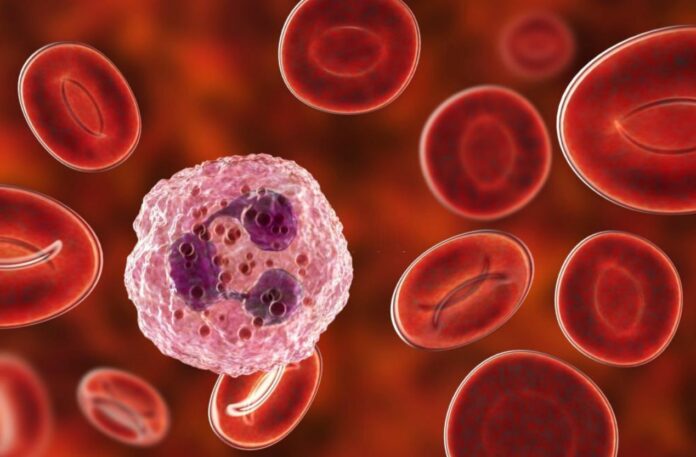Neutrophils Take Center Stage in the Fight Against Cancer: A New Study Shows How
A groundbreaking discovery by an international team, including researchers from the University of Geneva and Harvard Medical School, has shed light on a previously unknown type of immune cell that plays a vital role in the effectiveness of cancer immunotherapies.
Neutrophils: Friend or Foe of Cancer?
Despite the success of immunotherapies in some patients, they often fail to work for many others. However, by examining the role of neutrophils – typically seen as a sign of treatment failure – the team found that there are multiple types of neutrophils, each with different markers on their surface.
These markers can determine whether the neutrophils will promote tumor growth or fight against it, potentially leading to a successful treatment. With further research, it may be possible to boost these specific markers and turn neutrophils into powerful allies against cancer.
The study’s findings, published in Cell, could pave the way for new and more effective cancer treatments.
Immunotherapy has emerged as a promising treatment for cancer by activating immune cells, particularly T cells, to identify and eliminate cancer cells. Although this approach has shown remarkable success in some patients, it has not been effective for the majority.
‘‘The reasons for these failures remain largely unknown,” points out Mikaël Pittet. “This is why deciphering the immune components involved is key to develop more advanced treatments and make immunotherapies a real therapeutic revolution.’’
Neutrophils are a vital component of the immune system, serving as the most abundant immune cells in the blood. They are known for their ability to rapidly mobilize to areas of infection or injury and release antimicrobial factors. However, in the context of cancer, neutrophils have long been seen as a hindrance due to their promotion of tumor progression and vascularization.
In a bid to better understand the precise role of neutrophils in cancer, a team of researchers studied the impact of anti-tumor treatments on mice with lung or colorectal cancer. Contrary to expectations, the researchers found that the number of neutrophils significantly increased in tumors that responded well to treatments. These findings suggest that the role of neutrophils in cancer may be more nuanced than previously thought and could have implications for the development of new and improved cancer treatments.
‘‘This first result was in contradiction with what was known about the role of neutrophils in cancer, pushing us to go further to understand why,’’ adds co-author Allon Klein.
Scientists from Geneva and the United States have devised innovative experimental protocols to compare the outcomes of successful and unsuccessful cancer treatments. The protocols were designed to enable a more in-depth analysis of individual cells of interest.
They found “that neutrophils are in fact much more diverse than previously thought. Those we observe in response to immunotherapies are very different from those detected in progressing tumours and carry distinct markers. Furthermore, if we block the response of these particular neutrophils, the benefits of the treatment disappear.’’
The findings are particularly remarkable because the interventions employed were not aimed specifically at neutrophils, revealing an unforeseen indirect impact. This implies that neutrophils are not a uniform group, but rather can exhibit either pro- or anti-tumor behavior depending on the context. Furthermore, neutrophils that are effective against tumors seem to possess potent cytotoxic abilities, similar to those employed against bacterial infections or in the process of tissue repair. Given their capacity to produce and discharge molecules directly within tumors, there may be potential therapeutic value in leveraging their capabilities.
The bone marrow is responsible for generating neutrophils, which subsequently enter circulation throughout the body’s blood and tissues.
‘‘It seems that the fate of pro- or anti-tumour neutrophils is already determined in the bone marrow. Would it then be possible to manipulate them fight tumours? This what we now want to explore,’’ remarks Mikaël Pittet.
The encouraging outcomes suggest that neutrophils can be activated to combat cancer, creating opportunities for novel therapeutic strategies that could substantially enhance the efficacy of existing immunotherapies.
Source: 10.1016/j.cell.2023.23.032
Image Credit:
